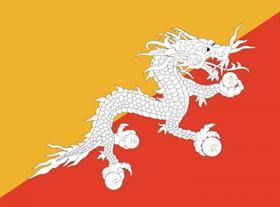
Bhutan, the small landlocked country in South Asia, could become the world's first nation to make its agriculture completely organic, according to a report in the Guardian, as it bans the sale of pesticides and herbicides.
The decision was taken on both practical and philosophical grounds, according to minister of agriculture Pema Gyamtsho, who was speaking at the annual sustainable development conference in Delhi.
The government anticipates that, far from limiting volumes, going organic will enable the country's farmers to grow more and increase exports to neighbouring India and China.
Although systems such as sustainable root intensification (SRI), regulating the amount of water crops need and the age at which seedlings are planted, have shown that organic crop yields can be doubled without the use of synthetic chemicals, weather problems have made some farmers doubtful.
'The last few years we have had problems with the crops,' said Rinzen Wangchuk, district farm officer in Paro, in the southwest of the country. 'The weather has been very erratic. It's been warmer than normal and all the chilli crops are full of pests. We are having to rely on fertilisers more than we have ever had to in the past and even these are not working as well as they initially did.'



